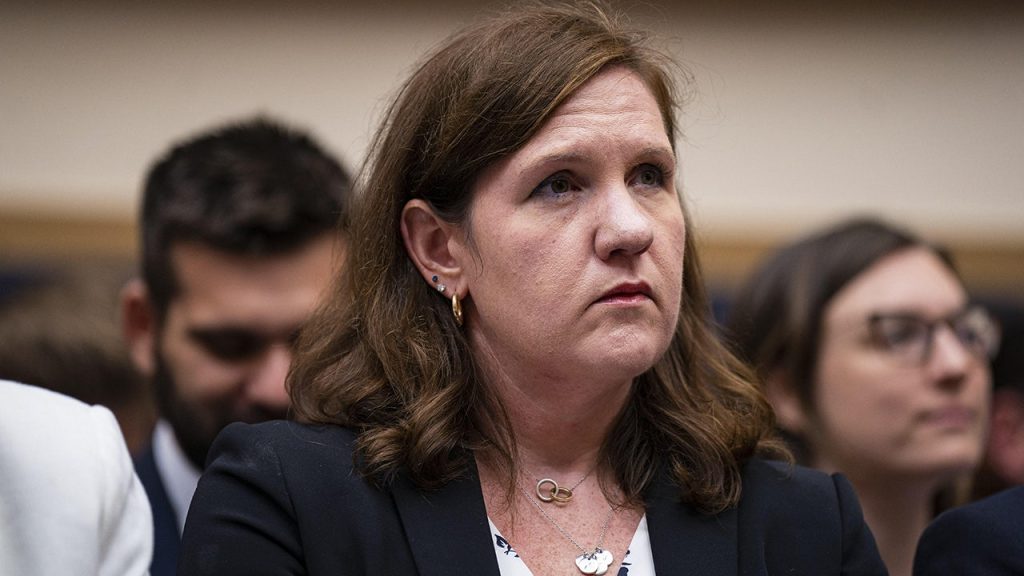Trump’s Challenge to Independent Agency Power Reaches the Supreme Court
The Supreme Court Battle Over Presidential Authority
The Trump administration has escalated its fight for expanded presidential power by asking the Supreme Court to allow President Donald Trump to fire Federal Trade Commission (FTC) commissioner Rebecca Slaughter without cause. This request follows lower court rulings that blocked Trump’s attempts to remove Slaughter, setting up a potentially landmark case about the boundaries of presidential authority over independent federal agencies. The dispute centers on a fundamental constitutional question: Should the president have complete control over all executive branch agencies, or can Congress create truly independent regulatory bodies with members protected from at-will dismissal?
The Commissioner Who Wouldn’t Leave
Rebecca Slaughter’s unusual employment situation epitomizes this constitutional standoff. Originally appointed to the FTC by Trump himself in 2018 and later reappointed by President Biden, Slaughter has experienced a bureaucratic version of workplace whiplash—being fired and rehired multiple times this year as the case progressed through the courts. Lower courts have consistently ruled that Trump’s attempts to remove her violated the FTC’s statutory protections, which only permit commissioner removal for specific causes like misconduct or neglect of duty. As the only remaining Democrat on the traditionally bipartisan commission, Slaughter’s position represents more than just her individual employment—it symbolizes the broader concept of agency independence from direct presidential control.
A Constitutional Crossroads for Independent Agencies
The Justice Department’s argument rests on a straightforward claim: as part of the executive branch, the FTC and similar agencies ultimately fall under presidential authority, including the power to remove commissioners at will. This position directly challenges decades of administrative law precedent, particularly the landmark 1935 Supreme Court decision in Humphrey’s Executor v. United States. That unanimous ruling established that Congress could create independent agencies whose leaders are insulated from presidential removal except for specific causes. This precedent has formed the legal foundation for numerous powerful regulatory bodies that oversee everything from labor relations and employment discrimination to communications and financial markets.
The Evolving Nature of Presidential Power
The current Supreme Court has already shown willingness to reconsider longstanding precedents regarding agency independence. In recent years, the justices have allowed presidential removal of board members from several independent agencies, suggesting a potential readiness to revisit or even overturn Humphrey’s Executor. The case also arrives amid broader constitutional debates about administrative state power and executive authority. Trump’s legal team appears to be banking on the Court’s conservative majority to further expand presidential removal powers, potentially transforming the relationship between the White House and the numerous independent agencies that regulate significant portions of American economic and social life.
The FTC’s Unique Position in the Controversy
The FTC’s central role in this constitutional debate carries historical significance. Created by Congress as an independent regulator, the commission enforces consumer protection measures and antitrust legislation across the American economy. Its traditional bipartisan composition—typically three commissioners from the president’s party and two from the opposition—was designed to ensure political balance and insulation from partisan pressure. This structure reflects Congress’s intent to create a body that could make regulatory decisions based on expertise rather than political considerations. The current dispute thus strikes at the heart of the agency’s founding purpose and operational design.
Broader Implications for Governance and Regulation
Should the Supreme Court side with the Trump administration, the consequences would extend far beyond Slaughter’s employment status. A ruling overturning or significantly limiting Humphrey’s Executor could fundamentally reshape the administrative state, potentially affecting the independence of numerous federal agencies. The Justice Department has already signaled that similar questions about presidential removal powers could arise regarding the Federal Reserve, where board member Lisa Cook may face similar challenges. The ultimate resolution of this case may determine whether independent regulatory agencies can maintain their traditional insulation from direct presidential control—a feature many scholars consider essential for consistent, expertise-driven policymaking—or whether they will become more responsive to changing political winds and presidential priorities. This constitutional battle reflects deeper questions about how government should function in a complex modern society and who should hold the ultimate power to shape regulatory policy.


